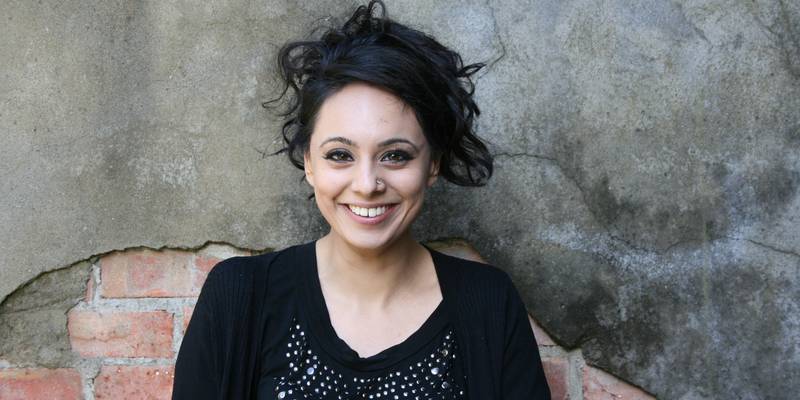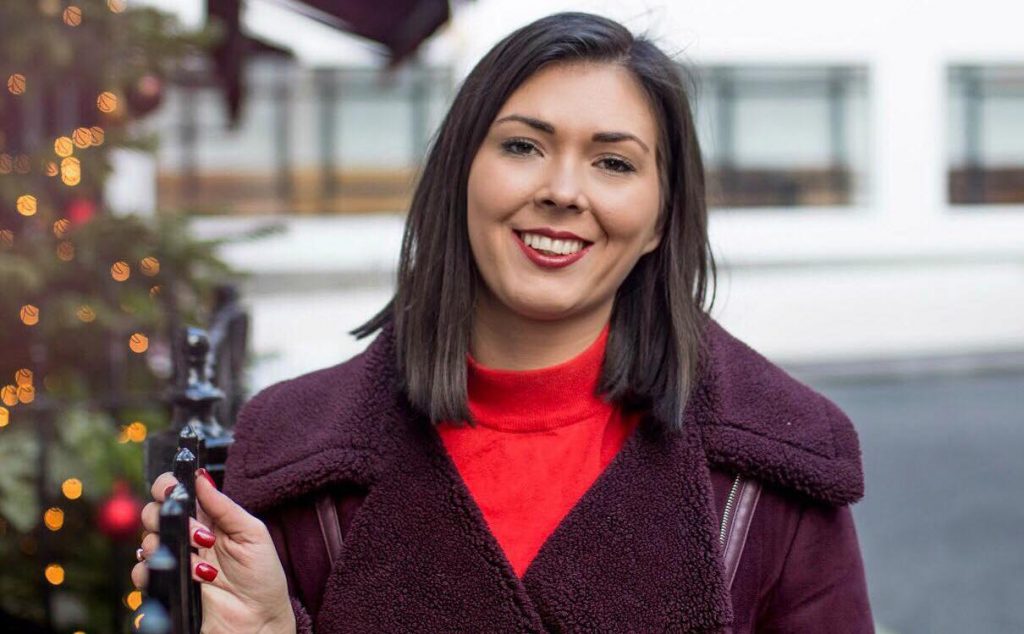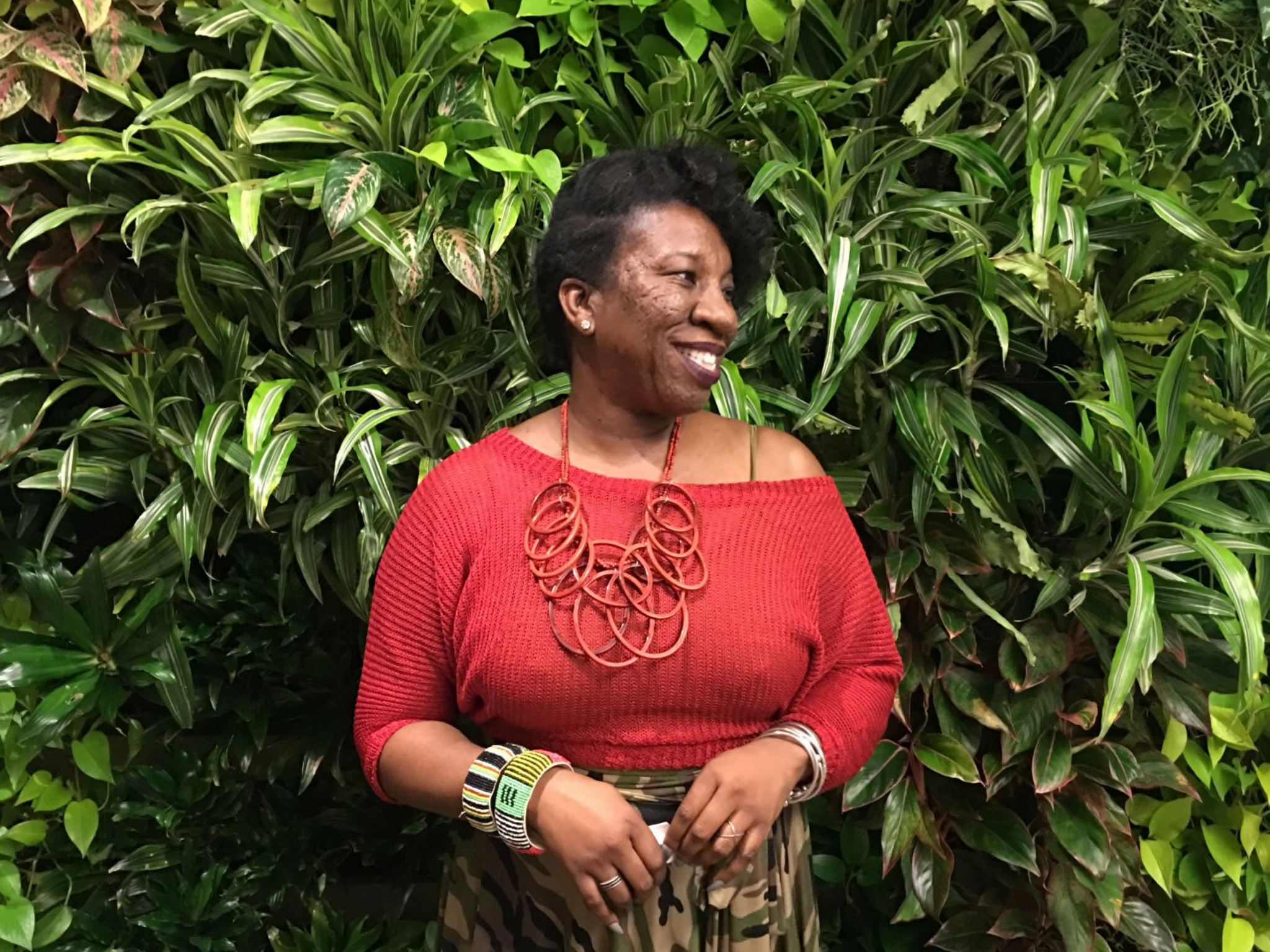When Tarana Burke first set up the #MeToo movement in 2006, she never envisaged it would take off the way it did – albeit some ten years later. The 44-year-old single mother had started using the term at the same time as she’d set up a charity to help survivors of sexual violence, but when it became a global sensation, the first thing she thought was panic.
“That morning I just felt panicked,” she tells The Telegraph (£) ahead of International Women’s Day 2018. “I spent the first part of that day feeling like the work I had invested my life in was going to be erased by a simple tweet.” The tweet in question came from American activist and actor Alyssa Milano in October 2017, who simply asked people to reply ‘me too’ if they’d ever been sexually assaulted or harassed.”
The tweet took off. The original was retweeted more than 24,000 times, while it was estimated that more than 1.7 million people from 85 countries tweeted about the phrase in the first few days alone, with Google searches for the term skyrocketing by more than 100 percent. However, while the message clearly resonated with a world rocked by allegations against Hollywood producer Harvey Weinstein, it left Tarana wondering – what next?
A Social Movement – Both Online and Offline
 Image Credit: Pavan Amara / My Body Back Project
Image Credit: Pavan Amara / My Body Back Project
It’s a question that’s also crossed over to this side of the pond. “It’s really brilliant, obviously,” Pavan Amara tells me. “I don’t think anybody realised the scale of [sexual harassment] and how many women go through that. But when people talk about it being a landmark moment in the world, it’s not.”
The 29-year-old made history after launching the world’s first maternity clinic for women who had been raped or sexually assaulted, making sure that human rights values like dignity and choice are put at the heart of women’s healthcare to avoid further trauma. The project has since expanded to include a range of workshops to help women reclaim their bodies after assault, and Pavan is keen that the focus now shift to making change in the real world.
I think there’s a big difference between a lot of people talking about something and a lot of people doing something
Pavan Amara, My Body Back Project
“I think there’s a big difference between a lot of people talking about something and a lot of people doing something,” she adds. “Even if a tenth of the people who were talking about something actually did something, I think the world would change a lot, but the vast majority of people just talk about it and don’t do anything.”
Making Real Change
 Image Credit: Hannah Price / Revolt Sexual Assault
Image Credit: Hannah Price / Revolt Sexual Assault
Alongside the millions of tweets though, there has also been an upstart of inspiring women-led projects across a number of different industries. Revolt Sexual Assault, for example, looks to tackle harassment and assault across university campuses, while collectives like the Second Source and Behind the Gown look at problems within their respective industries of journalism and law.
Sexual harassment is a complex issue to solve, and one that touches on several of our rights. After all, women’s rights are human rights. Internationally, the Convention on the Elimination of all forms of Discrimination Against Women (CEDAW) provides a robust framework for protecting and respecting women’s rights, and, through the CEDAW Committee’s General Recommendation 35, also includes specific prohibitions about sexual violence. As a member of CEDAW, the UK undergoes a review on its progress every four years.
At university I’ve experienced everything from ‘casual groping’ to rape.
Hannah Price, Revoly Sexual Assault
Closer to home, the Human Rights Convention is part of UK law thanks to the Human Rights Act. Women have the right not to be tortured or treated in an inhuman and degrading way, to have their private and family life respected, including physical and psychological integrity and not to be discriminated against on the basis of their gender. Women can also expect any crimes they report to be investigated robustly.
Sadly though, these protections often aren’t enough. A recent study by Revolt Sexual Assault of 4,500 university students found that more than 60 percent of students had experienced sexual violence at universities, while just one in ten reported their experiences to either the police or university.
“While I was at university I experienced everything from harassment and ‘casual’ groping to rape,” explains founder Hannah Price to RightsInfo. “I’m not alone. I set up Revolt Sexual Assault to bridge the gap between institutions and student survivors, so that the scale of this epidemic is acknowledged and addressed.”
“We want to see a uniform national response to what must now be recognised as a nationwide issue – an enforced and consistent standard of care implemented across the higher education sector, with student survivors at its heart.”
‘We’re Only Just Getting Started’
Speaking to RightsInfo, the Second Source’s Jasmine Andersson echoed Hannah’s views on helping to create positive and constructive social change off the back of the #MeToo movement.
“The Second Source was set up because although women journalists have this incredible platform, their tales of sexism and harassment are the one thing that’s not being reporting,” she explained.
“Our scheme is set up to take the #MeToo discourse further and provide practical solutions on how we can help women in journalism – and we’re only just getting started.”
They’ve already made a solid start, having run and attended events for women across the country, as well as launching a mentoring scheme for those who might be at risk of leaving the industry.
The Second Source was set up because although women journalists have this incredible platform, their tales of harassment aren’t being reported.
Jasmine Andersson, The Second Source
“The online world has been so helpful in allowing students to share their experiences,” adds Hannah, who has pioneered the use of Snapchat to allow women to tell their stories anonymously. “But the most important part of our work happens offline, where we are meeting these amazingly strong and inspiring students. Every testimonial I hear fires me on to promote real and meaningful change, lobbying Government and higher education for the nationwide policy needed.”
While the numbers and stories surrounding sexual harassment and assault remain shocking, it’s undeniable that there has been a concerted movement since October to start tackling the problem – both on and offline. #MeToo may have started as a valuable platform to share women’s experiences, but it’s quickly become much more.







